
Tuesday 14 December 2021 was a busy day in Westminster during which three sources of compensation for three distinct groups of Subpostmasters were discussed in various parliamentary corners.
At just after 9am yesterday morning the Business (Postal Affairs) Minister Paul Scully (left) published a written statement announcing the government was going to underwrite compensation for Subpostmasters whose convictions have been quashed – or in minister-speak:
“making funding available to facilitate Post Office to make final compensation payments to postmasters whose convictions have been overturned.”
We knew the Post Office was unable to meet its compensation obligations which had arisen during the Historical Shortfall Scheme, and we knew that the government had authorised the funding of £100k interim payments to some Subpostmasters whose convictions had been quashed. Whilst it was therefore obvious that the Post Office could not meet the obligations which are likely to arise from the compensation claims of the latter group, the government had not, until yesterday, actually confirmed it was going to pick up the tab.
Scully’s statement, though, is carefully worded. He tells the House:
“We are working with Post Office to finalise the arrangements that will enable the final settlement negotiations to begin as soon as possible.”
It has been a year since some convictions have been overturned. Only now is the government announcing it is finalising arrangements to begin final negotiations. It’s clearly not in any hurry.
Scully concludes:
“With the Secretary of State’s status as sole shareholder in the Post Office, my Department continues to engage actively with Post Office Limited on this and will maintain strong oversight of the compensation process.”
This means the Post Office will be able to blame any delays on the government, and the government (as Peter Grant MP recently discovered) will be able to pass the buck for any delays back to the Post Office.
Historical Sh**show Scheme
I have been in contact with a number of applicants to the Post Office’s Historical Shortfall Scheme, none of whom seem particularly happy with it. This scheme was set up by the Post Office as part of a series of commitments in the Settlement Agreement which marked the end of Bates v Post Office at the High Court. It allowed every Postmaster other than the 555 claimants who were part of the High Court litigation to put in a claim for any losses they had suffered.
The HSS was set up last year and was open for a matter of weeks. This year the Post Office admitted it had only put aside £35m to cover it. Before the final total of claims had been assessed the Post Office realised it was facing a £311m bill. At that point it recognised it was essentially no longer a solvent business and raised the white flag, asking the government to step in and cover the claims.
Yesterday in parliament, Alistair Carmichael MP raised the subject of the HSS during a Westminster Hall debate. One of his (now sadly deceased) constituents, Elena Kimmett, had last year put in a claim for compensation to cover the losses she suffered whilst running Stromness Post Office on the Isle of Orkney. She died of cancer in December last year.
The losses weren’t huge, but between 2000 and 2008, they chipped away at what little Elena and her husband Archie had. Mr Carmichael told the House that Elena:
“went from being a happy, competent, outgoing mother to somebody who was withdrawn, quiet and reserved. On Wednesday night, the balancing night for the Post Office, instead of coming home for the usual family meal, she started not to want to take part.”
Mr Carmichael explained Elena:
“was making up the losses from the Horizon system from her own pocket. She asked the Post Office on many occasions for help, but she was always told that the system was infallible and that if money was going missing and it was not her, then it must be her staff. Her staff had all worked for her for long periods of time, and included her mother and husband.”
I spoke to Anne Robertson, Mrs Kimmett’s lawyer. Ms Robertson says Elena was repeatedly told by the Post Office that she was the only one having difficulties with the Horizon system, a lie which, when believed, generates suspicion between friends and family members and/or confidence-shattering self-doubt.
Mr Carmichael raised the debate because he and Ms Robertson were so concerned about the Historical Shortfall Scheme which Elena had used to apply for redress. It is clear to both Ms Robertson and Mr Carmichael that the scheme is a ruse to trap trusting applicants into claiming the minimum possible redress whilst asking them to provide the maximum possible ammunition which can be used against them.
Mr Carmichael said the application form for the scheme:
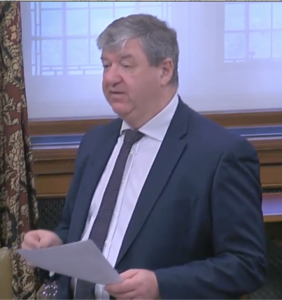
“should properly be regarded as a claim form. The wording of the questions is clearly slanted towards fault and questions actions by employees that are completely unrelated to the employment. The wording actively discourages and gives no space or invitation to specify what the experience of the applicants has been or the effect that it had on them.”
He went on to say: “The application form did not specify that it would be the only opportunity that Elena would be given to state her case. No advice was given that she should seek legal advice before completing and submitting what was a legal claim.”
Mr Carmichael felt the form was designed to steer applicants away from any thought of compensation, even to the point of the space given for the response. He then raised the issue of “consequential loss”.
“There is nothing in the form” said Mr Carmichael “that would allow for the sort of compensation that Elena should, in law, have been entitled to. The application form asks postmasters to identify any alleged shortfall losses, as well as any other losses that are caused by the Horizon shortfall—namely, consequential loss. That appears to limit any payment to the claimant to proven consequential loss as defined by the Post Office. There is no reference to compensation for anguish, upset or distress caused by its action. There is no reference in the form to any payment.”
Mr Carmichael and Ms Robertson complained to the Post Office about their handling of Elena’s claim. They felt she had been led into claiming far less than the Post Office (in Ms Robertson’s words) had “stolen” from her, and refused to accept the Post Office’s offer of £3000 (Elena’s claim – representing the final shortfall which caused her to resign from running the Post Office) plus interest and £400 in legal fees.
On 23 November this year, the Post Office organised a “good faith” conference call, which it refused to let Mr Carmichael or Ms Robertson record. The Post Office was represented by a barrister and a note-taker. Mr Carmichael said:
“there are two ways in which lawyers can be used on these occasions. They can be used as an adviser, and indeed as a conduit for good information, or they can be used to insulate the client from the anger of the claimant. It was pretty clear from the Post Office putting nobody up for that so-called good faith meeting that it was the latter, rather than the former.”
According to Mr Carmichael, the meeting ended with a threat: “When we indicated at the end that we were not content with what we had been told and would not accept the offer, the representative of the solicitors acting for the Post Office turned round and said, ‘Be aware that if you go to the next stage, it is possible that the sum offered could be reduced or withdrawn completely.’ If ever there was a point when we understood the lack of respect that still pertains between the Post Office, its representatives and the Subpostmasters whom we represent, that was it. That was the disgrace. That is why it has to change.”
From the above account, it seems the Post Office hasn’t changed much since it was conducting its negotiations with Postmasters in 2014 as part of the Complaint and Mediation Scheme, denounced by MPs in December 2014 at a debate in Westminster Hall as a “sham”.
Meanwhile, at the BEIS Select Committee hearing
Darren Jones MP, chair of the BEIS select committee, seems to be on top of his brief. In June last year he wrote three letters to: Paula Vennells (former Post Office CEO), Nick Read (current Post Office CEO) and the global head of legal affairs at Fujitsu which were so laser-like in their precision, they either elicited hard information or showed the respondents up for what they were. I’ll leave you to judge.
He also seems to “get” the Horizon scandal. And despite his inquiry being thrown into stasis by Sir Wyn Williams’ Statutory Inquiry, Jones seems to have found a way to get it going again.
It is a slightly annoying, but understandable convention that when the courts or a quasi-judicial process is examining or litigating an important subject, parliamentarians keep schtum and don’t start lobbing inconvenient bombs which may or may not disrupt the legal process. However, as Mr Jones said on Tuesday (watch the whole session here):
“We had letters from parliamentary colleagues and others highlighting problems with compensation and interim payments to victims of the Horizon scandal and given that compensation is out of scope of the Inquiry my committee sought agreement from Sir Wyn Williams with victims and representatives of victims and a second session in the new year with minsters and senior leaders from the Post Office specifically on the question of compensation and interim payments as that is out of scope of the statutory inquiry.”
This is interesting as Sir Wyn Williams has made it clear that the issue of compensation is one of the concerns of his Inquiry. Perhaps it wasn’t when he gave permission for Jones’ select committee to continue its inquiry, and it was only Alan Bates’ recent manoeuvrings that brought it to the fore.
Luckily Alan Bates (along with fellow former Subpostmasters, Jo Hamilton and Paul Harry) was a witness at the BEIS select committee oral hearing on Tuesday so he was able to articulate his position, which he did so by saying the settlement agreement he signed with the Post Office which saw an average of £21k returned to the 555 High Court claimants “may well be unsafe”. Bates said this was because “it was obtained by duress and unfair conduct”.
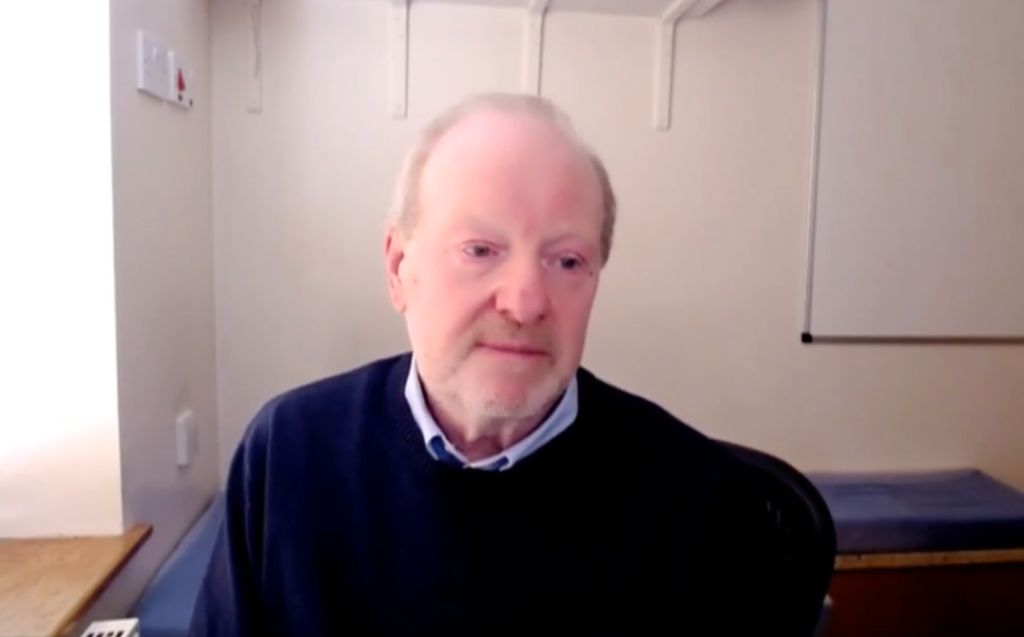
Bates then surprised everyone by continuing:
“which is why today we are announcing we have an open contract available to any law firm that wants to pick up our case to have the settlement agreement set aside.”
Alan Brown MP asked Bates why he thought the government was happy to fund compensation for those whose convictions had been overturned (and by implication those who weren’t part of the group litigation) but stuck to the line that compensation for the 555 who blew open the scandal should be full and final at an average of £21k each.
“It’s punishment. It’s the way they operate. They haven’t been at all happy that we brought this up in the first instance… they were determined to bury it at any cost. There’s a lot to come out and I think there’s been some sort of major cover-up that’s been going on, hopefully that will be revealed over the years. Why we should be suffering, why the 555 should still be suffering… is wrong.”
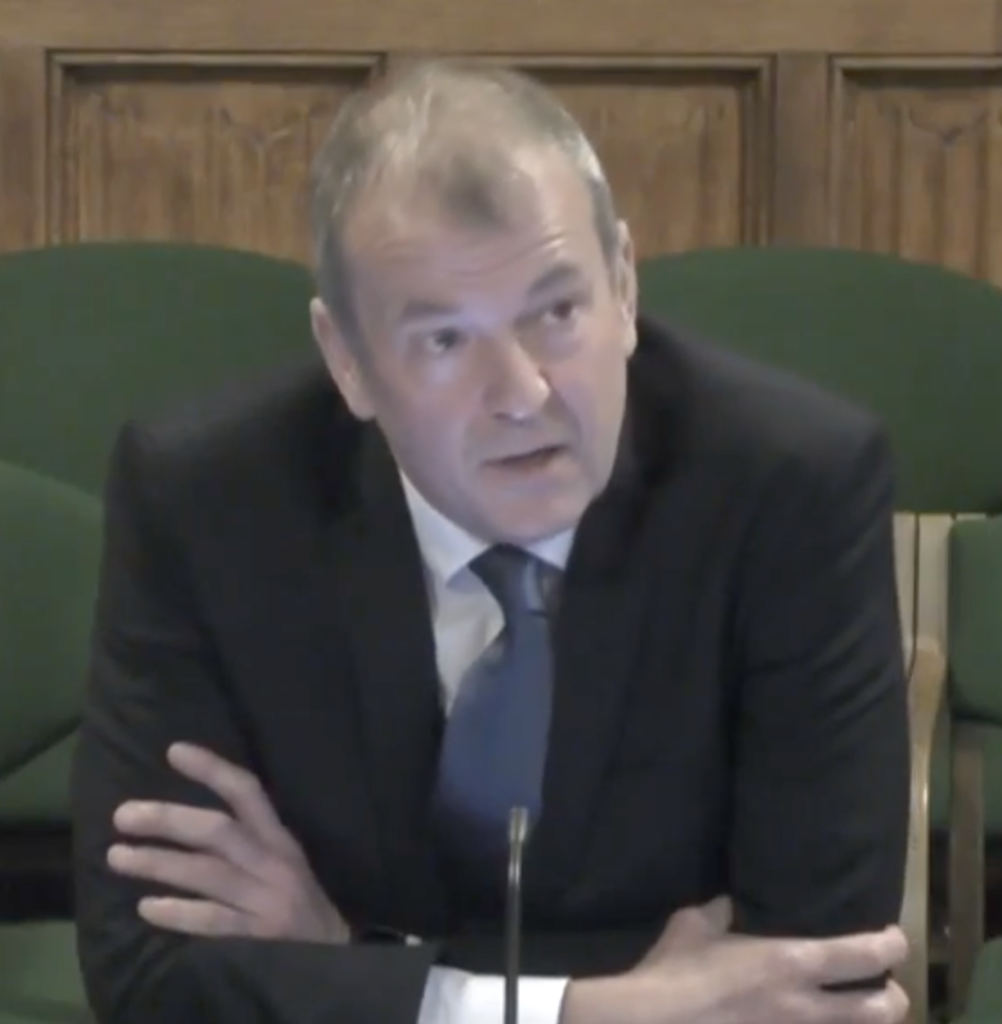
Dr Neil Hudgell from Hudgell solicitors also took part in the evidence session. He told the committee he represented 59 Subpostmasters whose convictions had been overturned. Of them, 42 had been given the full interim compensation payment of £100k, with six more agreements in principle.
Of the remaining 11, six had complications involving the official receiver (there is apparently a whole world of pain involved in receiving compensation if you are ever declared bankrupt), three have been refused, and the final two were still looking for paperwork which would better serve their cases.
The three who had been refused, said Dr Hudgell, “they were based on false confession evidence and Post Office have said essentially that Horizon and the operation of the IT system wasn’t intrinsic to the prosecution. We feel strongly about that and we are mounting a claim to present to them and if it’s not appropriately responded to then we will issue proceedings.”
Dr Hudgell explained:
“False confessions are quite a strong part of the story… there was certainly a prosecution strategy which involved [saying] “don’t blame Horizon… and as part of that, make up a story as to what you’ve done with money you’ve supposedly taken.”
Nusrat Ghani MP was interested in one of the Post Office’s key tools in steering Subpostmasters away from questioning the Horizon system and into the black hole of self-doubt and ultimately self-incrimination – that each individual was the only one having problems with their IT.
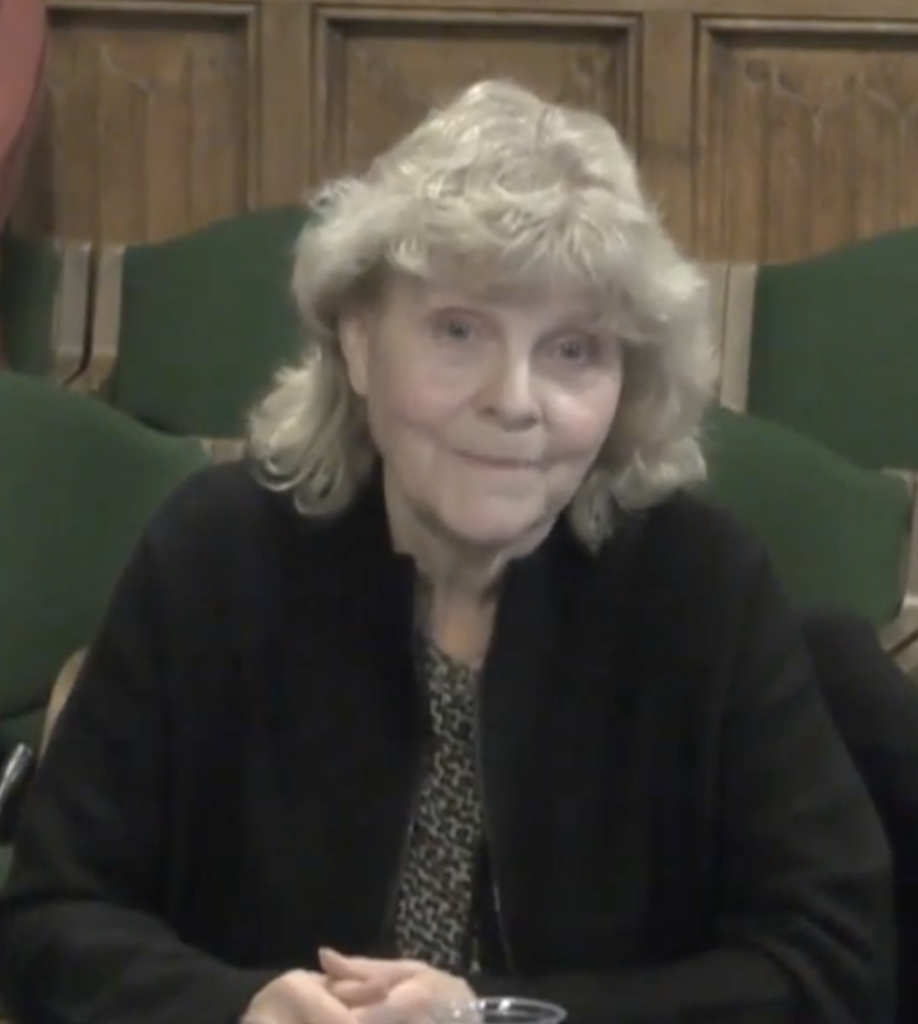
Jo Hamilton, whose conviction was quashed on 23 April this year told her: “If you actually shift back to 2003/4, social media wasn’t around really like it is now and we didn’t realise… we had the first meeting in 2009 and we literally sat round a room like this and we told our stories and we were all telling the same story. We’d all been told we were the only ones.”
Ms Ghani was keen to get more of this on the record. “I just want to drill down. When were you told you were the only one?”
Jo replied: “I remember the first time they said it… in 2006 when they came round to my house… the Post Office investigation team.”
Ms Ghani made sure: “So in 2006 you were told you were unique? You were the only one?”
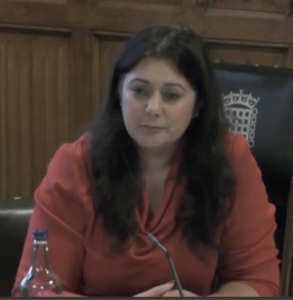
“Yeah.” said Jo. “It was a lie. A complete lie. Subsequently when we got together in a group, we found the same investigators telling the same ones of us that we were the only ones – only like a couple of months later they were telling someone else they were the only one.”
Dr Hudgell said that this was part of “an inequality of arms, and inequality of arms which continues to this day. I’ve always compared to a jigsaw. If there’s an 800-piece jigsaw – just above the number of convictions there’s been – each person has one piece; Post Office has all 800, so there’s only one party that can see the picture and that was obviously Post Office.”
Towards the end of the session, the MPs started asking questions about the Post Office’s handling of its Post Conviction Disclosure Exercise (PCDE) during which it revealed it had written to at least 500 people telling them they might be able to get their convictions quashed.
Dr Hudgell told the committee:
“We still from time to time get new enquiries from people that were convicted a long time ago… but… there’s a bit of a fear of taking on Post Office again, because anecdotally I’ve heard that the Post Office have written out to all the people that were convicted and some people have written back saying “listen – I just don’t want to know about this” and obvious that’s incredibly sad because at the minute they’ve got a huge stain on their character that needs flushing away.”
Nusrat Ghani said she was “still struggling to understand” why the discrepancy between the 738 Horizon convictions and the percentage of those which have been quashed (72, so just under 10%) “is so huge”.
Hudgell replied:
“I know from my own experience that people become incredibly paranoid… cynical… fearful. I’ve got rafts of clients that have got psychiatric medical evidence that say that they’ve had a variety of disorders from which many of them are still continuing to suffer, even with the benefit of medication, counselling and all those things. So you can imagine people left to swim alone for many years it becomes a vicious circle. I think there’s a number of people who fit that category.”
Hudgell added:
“Sadly some will have died. I know some people who have left the country and I suppose if we have to be completely balanced and fair about it there will be one or two people whose convictions are actually entirely safe.”
Ms Ghani made a note that although the Post Office has said it is contacting Subpostmasters, there is no information available about who from the 738 has been found, who has replied and how they have replied and resolved to get that information from the “appropriate minister”.
In wrapping up, the chair, Darren Jones said:
“It sounds to me like the government might want to think about an independent body or organisation to reach out to victims. If people don’t want to hear from the Post Office because of their experience….?”
Jo Hamilton wasn’t too sure.
“Yeah.. or the group, the JFSA, they couldn’t be more supportive, if you reach out to them, because we’re all human, we’ve all been through it and we know the process… I personally know two people that have run a million miles from it. They’ve personally had letters from the Post Office and they won’t have anything to do with it.”
Darren Jones said he thought it would be something his committee could take forward, then switched his thoughts to the handling of the Historical Shortfall Scheme. Dr Hudgell pointed to his concerns (also expressed eloquently last year) that the scheme acted like a “funnel” which “trapped” people in a resolution process, echoing the comments of Alistair Carmichael and Anne Robertson above – that essentially the scheme exists to act in the interests of the Post Office before its victims.
Jones finished with a blast at Paul Scully for the written statement put before the House (where we started this epic blog post) announcing that the government would underwrite the compensation for those whose convictions had been quashed:
“To publish a written ministerial statement two hours before a session like this… leaking it to the press the day before, not providing sufficient detail or giving a statement to the house is, quite frankly, wholly unacceptable [Jo Hamilton: “It’s terrible.”]… it’s terrible I agree. And so we will be calling ministers and the Post Office to ask many of the questions that we’ve talked about today and to try to provide as many answers as possible.”
This blast may have had some impact. Today Paul Scully will be making an oral statement to the Commons under the title: “Approval of Funds for Full & Final Settlement for Postmasters with Overturned Criminal Convictions”. Watch it here.

Leave a Reply